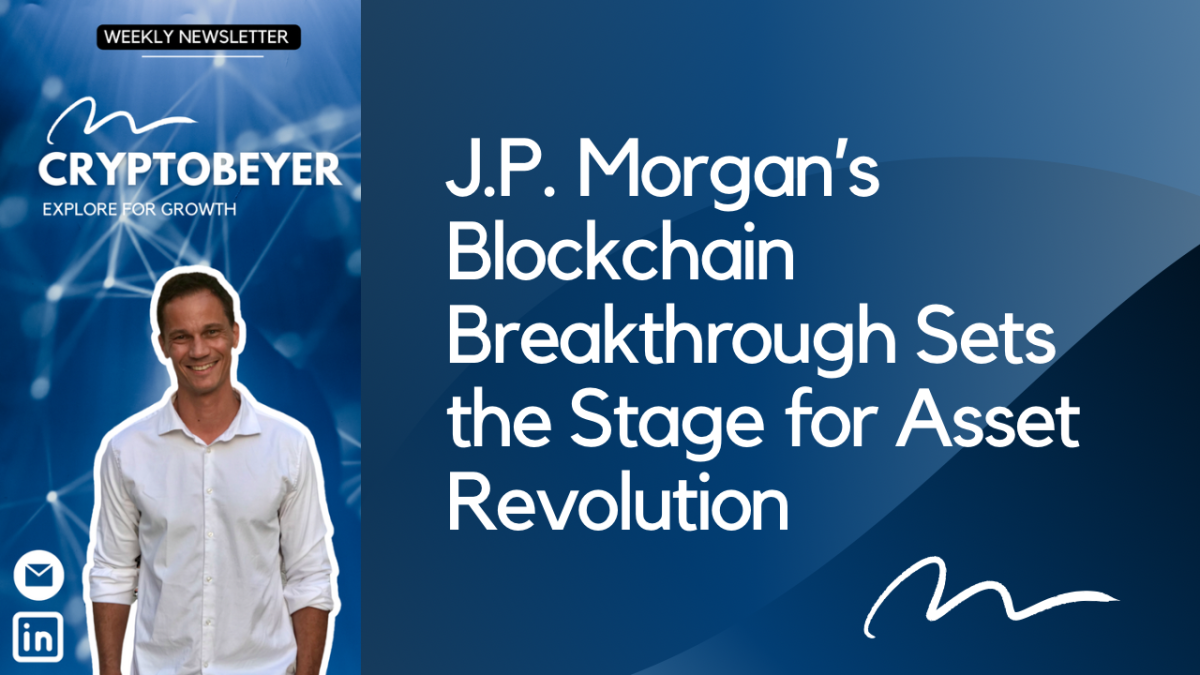Yes, you read that right. The biggest traditional bank in the US has successfully executed a historic transaction involving tokenized ownership interests in BlackRock’s Money Market Fund shares. What is this? What does it mean for the future of finance and trading? Let me break it down for you.
Imagine a company that wants to turn it into a digital asset. This is where blockchain technology comes in. Basically, J.P. Morgan took the shares of Blackrock Money Market Fund and made them into special digital versions. Each digital version of the shares is like a digital certificate that says that someone owns a part of the BlackRock Money Market Fund. This digital certificate or token is kept safe and immutable using blockchain technology. To me it helps picturing it like a digital stock which is a part of something valuable.
Moving on, J.P. Morgan transferred these tokenized ownerships to Barclays which is a British multinational bank who in turn used these digital certificates as a guarantee in trading. It’s called over the counter (OTC) trading.
Owning a digital certificate of the world’s largest asset manager fund is valuable for sure. The implications of J.P. Morgan’s entry into asset tokenization are huge. The financial landscape sees a $16 trillion business opportunity by 2030, according to the Boston Consulting Group.
Several companies, including BNY Mellon, BlackRock, London Stock Exchange (LSEG), Ascend Bit, Maple, Ava Labs, BlockTrust Solutions, and QuantumTokens Inc., are actively engaged in the process of tokenizing assets. Notably, BNY Mellon, JP Morgan, and BlackRock have recognized the potential efficiencies in payment and settlement by embracing asset tokenization.
Asset tokenization is reaching many industries.
Real Estate: Asset tokenization can unlock access to real estate investments, enabling fractional ownership of properties and enhancing liquidity in this traditionally illiquid market.
Art and Collectibles: By tokenizing valuable art pieces and collectibles, this industry can become more accessible to a broader audience of investors, providing increased liquidity and transparency in art transactions.
Venture Capital: Tokenizing venture capital investments can democratize access to early-stage investment opportunities, allowing smaller investors to participate in promising startups and potentially high-growth companies.
Supply Chain: Implementing tokenization in supply chains can improve transparency, traceability, and efficiency, facilitating smoother tracking of goods and reducing the risk of counterfeit products.
Banking and Finance: The financial sector can benefit from streamlined transaction processes, reduced settlement times, and lower operational costs through the adoption of asset tokenization, potentially revolutionizing traditional banking and investment practices.
Commodities: Tokenization can offer enhanced accessibility to commodities such as precious metals, energy resources, and agricultural products, enabling broader participation in these markets and facilitating more efficient trading processes.
To me it’s a sign of considerable development. In 2017, J.P. Morgan CEO Jamie Dimon called Bitcoin a “fraud” and he said that he would fire any employee trading it. Since then, the tide has turned, and hundreds of banks worldwide see the use case of blockchain technology. Mostly for rapid and cheap cross-border transactions.
The word on the crypto street is that “Don’t listen to what the banks say. Look at what they are doing”.
Continue reading about tokenization: What is Off-Chain Asset Tokenization: Why Does it Matter?

